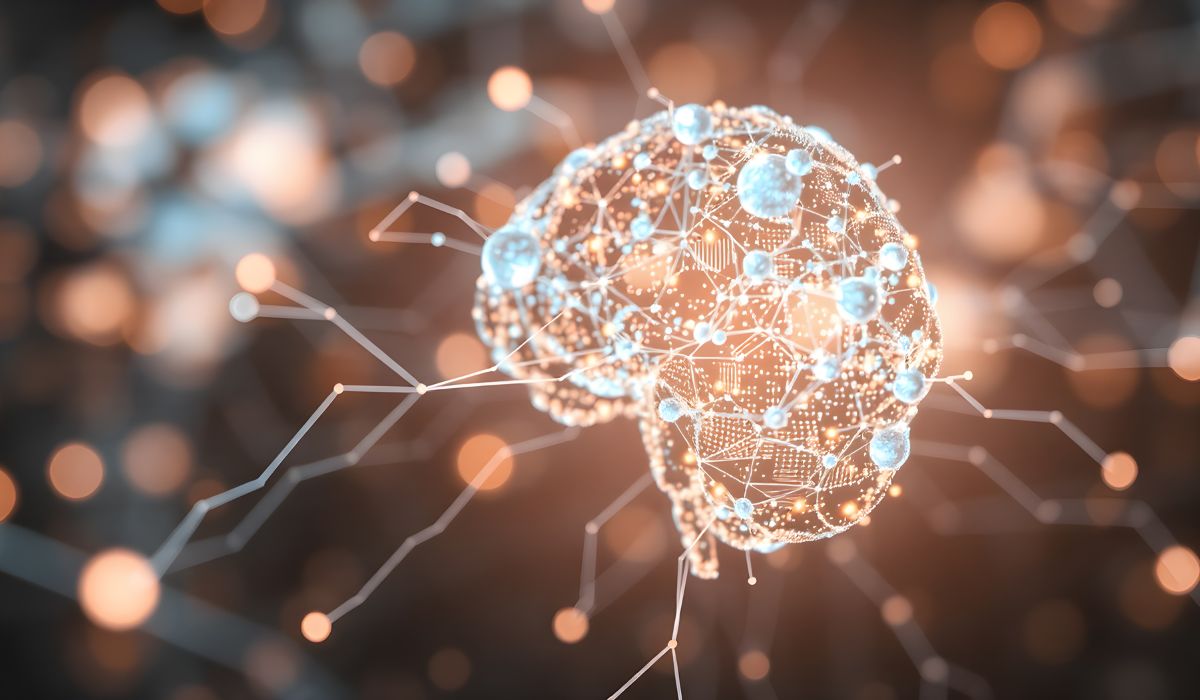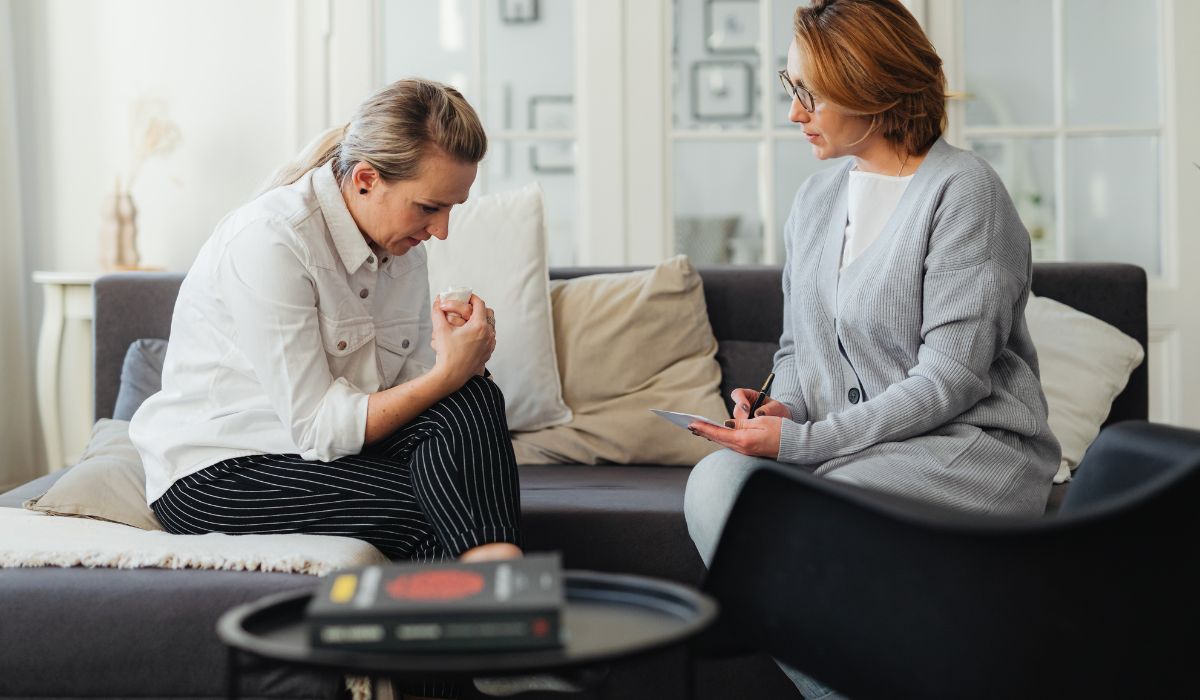What Does “AI Therapist” Even Mean?
More people are asking, “Is it safe to use an AI therapist?” You might see apps, chatbots, or websites say things like “AI therapy,” “virtual therapist,” or “mental health AI.”
But here is the truth:
-
An AI therapist is not a real person.
-
It is a computer program that uses artificial intelligence (AI) to chat with you.
-
It may help you think about your feelings, stress, anxiety, or depression.
Some AI tools use ideas from therapy, like cognitive behavioral therapy (CBT), to help you notice your thoughts and feelings. But they do not have human hearts, and they are not licensed mental health professionals.
So, let’s talk about what AI can and cannot do, and how to stay safe if you choose to use it.

How Does an AI Therapist Work?
AI Chatbots and Mental Health Apps
Many mental health tools today are:
-
AI chatbots in apps or websites
-
Online therapy platforms that use AI features
-
Self-help tools that give coping tips
They might help you:
-
Track your mood and sleep
-
Learn coping skills for stress, anxiety, or panic attacks
-
Practice relaxation, breathing, or meditation
-
Write about feelings like sadness, anger, or shame
The AI reads what you type and tries to:
-
Understand your words and tone
-
Match your message to patterns it has learned
-
Give you a response that seems caring and helpful
What AI Can Do Well
AI tools can often:
-
Be available 24/7
-
Answer quickly when you feel alone
-
Remind you of healthy coping skills
-
Help you journal or reflect on your day
This can feel comforting, especially late at night or when you do not want to talk to anyone yet.
What AI Cannot Do
AI cannot:
-
Truly understand your life the way a human therapist can
-
Notice body language or your voice tone if you only type
-
Make professional diagnoses (like major depressive disorder, PTSD, ADHD, or bipolar disorder)
-
Act as a licensed therapist or psychiatrist
-
Safely handle all kinds of risk, like suicidal thoughts or self-harm
This is why the big question — “Is it safe to use an AI therapist?” — really depends on how you use it.
Is It Safe to Use an AI Therapist?
Let’s break “safety” into a few parts: emotional safety, accuracy, crisis help, and privacy.
Emotional Safety: How Will It Make You Feel?
Sometimes AI can give responses that feel:
-
Cold or robotic
-
Too simple for a hard problem
-
Confusing or even a little off
If you already feel sensitive, anxious, or depressed, a strange answer might hurt your feelings or make you feel more alone. That’s not safe for your heart.
A good rule:
-
If the AI ever makes you feel worse, judged, or unsafe, stop using it and reach out to a real person.
Accuracy: Does AI Give Correct Mental Health Advice?
AI tools do not always get it right. They may:
-
Miss important warning signs in what you say
-
Give general advice that doesn’t fit your life
-
Use outdated or wrong information
AI is trained on many texts and data. It does not really “know” you — your history, trauma, body, culture, or family situation.
For serious mental health conditions like:
-
Major depressive disorder
-
Anxiety disorder
-
PTSD or trauma
-
Eating disorders
-
Personality disorders
you need a human mental health professional, not just AI.
Crisis Safety: Can AI Help in an Emergency?
This part is very important:
AI is not safe for emergencies.
If you have:
-
Thoughts of suicide or self-harm
-
Plans to hurt yourself or someone else
-
Signs of a mental health crisis, like hearing voices telling you to act, or feeling totally out of control
You should not rely on an AI therapist.
Instead, you should:
-
Call your local emergency number
-
Contact a crisis hotline in your country
-
Go to the nearest emergency room
-
Reach out to a trusted adult, friend, or family member
-
Call or message your therapist, doctor, or counselor if you have one
AI may give you a crisis number or suggest reaching out — but it cannot call anyone for you, send help, or fully understand the danger.
Privacy and Data Safety
Another big part of safety is privacy.
When you use an AI mental health app, your data may be:
-
Stored on servers
-
Used to improve the AI
-
Shared with other services (depending on the app)
Before you use an AI therapist, you should:
-
Read the privacy policy (or ask a parent to help)
-
Check if the app sells your data or shares it with others
-
See if the company explains how they protect your data
If you feel unsure about how your data is used, it may not be safe enough for you.
When Can Using an AI Therapist Be Helpful?
AI tools can be helpful when used as a support tool, not your only support.
They may be useful if you:
-
Want to start exploring your feelings but feel shy
-
Are waiting for an appointment with a therapist
-
Want reminders about coping skills, like breathing or grounding
-
Use it for education and self-help, not as your only treatment
Some ways people use AI safely:
-
Ask for grounding exercises for anxiety
-
Ask for journaling prompts about mood or stress
-
Ask for ideas to talk to a therapist or doctor
-
Learn about therapy types (like CBT, DBT, or family therapy)
Risks and Limits of AI Therapists
Even when AI is used in a helpful way, there are still risks:
-
It might miss red flags in your messages.
-
It might sound confident while being wrong.
-
It cannot report abuse or protect you if you are in danger.
-
It may not understand your culture, values, or identity.
If you notice any of these signs, the AI may not be safe for you right now:
-
It downplays your pain or tells you it’s “not that bad.”
-
It gives medical or medication advice like changing doses.
-
It tells you to ignore professional advice from your doctor or therapist.
-
It makes you feel more alone, more ashamed, or more confused.
When that happens, it’s time to log off and talk to a human being.
How to Use AI for Mental Health in a Safe Way
Here are some safety tips if you decide to use an AI therapist or mental health app.
1. Remember AI Is a Tool, Not a Doctor
Use AI as a:
-
Coach for coping skills
-
Journal buddy
-
Education helper
Do not use AI as:
-
Your only source of mental health care
-
A replacement for a licensed therapist or psychiatrist
-
The main support during a crisis
2. Keep a Real-Life Support Team
Even if you like AI tools, make sure you also have:
-
A therapist, counselor, or psychologist if possible
-
A doctor or psychiatrist for medication questions
-
Trusted friends, family, or community members
AI can be one part of your mental health plan, but not the whole plan.
3. Be Honest About How It Makes You Feel
Check in with yourself:
-
“Do I feel better after using this?”
-
“Do I feel more hopeful or more hopeless?”
-
“Am I avoiding real help because I only talk to AI?”
If AI makes you feel worse, it is not safe for you right now.
How to Choose a Safer AI Mental Health App or Tool
If you are thinking of using an AI mental health app, look for:
-
A clear privacy policy
-
Warnings that it is not for emergencies
-
Info about licensed clinicians involved in the design
-
Clear disclaimers that it is not a replacement for real therapy
-
Options to export or delete your data
You can also:
-
Ask a parent, guardian, or therapist to review the app with you
-
Look up reviews from trusted mental health organizations
Signs You Need a Human Therapist Right Now
AI tools are not enough if you notice:
-
You cannot get out of bed most days
-
You lose interest in things you usually enjoy
-
You have thoughts of hurting yourself
-
You feel numb, empty, or hopeless most of the time
-
You have panic attacks often
-
You start using drugs or alcohol to cope
-
You see or hear things that others don’t
These can be signs of serious problems like major depressive disorder, anxiety disorder, PTSD, or other mental health conditions that need real treatment.
In those times, it’s important to:
-
Talk to a licensed therapist or counselor
-
See a doctor or psychiatrist
-
Reach out to trusted people in your life
Can AI and Human Therapists Work Together?
Yes, they can. Many people use both:
-
Human therapist for deep work, diagnosis, and support
-
AI tools for homework, journaling, or reminders between sessions
For example, you might:
-
Use AI to practice coping skills your therapist taught you
-
Bring what you wrote with AI to your next session
-
Ask your therapist if a certain AI app seems safe for you
This way, you get the best of both worlds:
-
The wisdom and empathy of a human
-
The access and structure of technology
Final Thoughts: Is It Safe to Use an AI Therapist?
So, is it safe to use an AI therapist?
The short answer:
-
It can be safe as a support tool,
-
but it is not safe as your only help,
-
and it is never enough in a crisis.
AI can be helpful for coping skills, education, and practice, but it cannot replace a real human mental health professional. Your mind, body, and story are too important for that.
If you ever feel lost about what to do next, the safest step is to talk to a real person who is trained to help.

Seeking Treatment? We Can Help!
We work with PPO Out of Network Health Insurance Policies
If you or a loved one are struggling with mental health challenges or substance abuse, reach out to Mountain Sky Recovery today. Our team of compassionate professionals is here to support your journey towards lasting well-being. Give us a call at 951-498-5412. Visit SAMHSA for more information.



